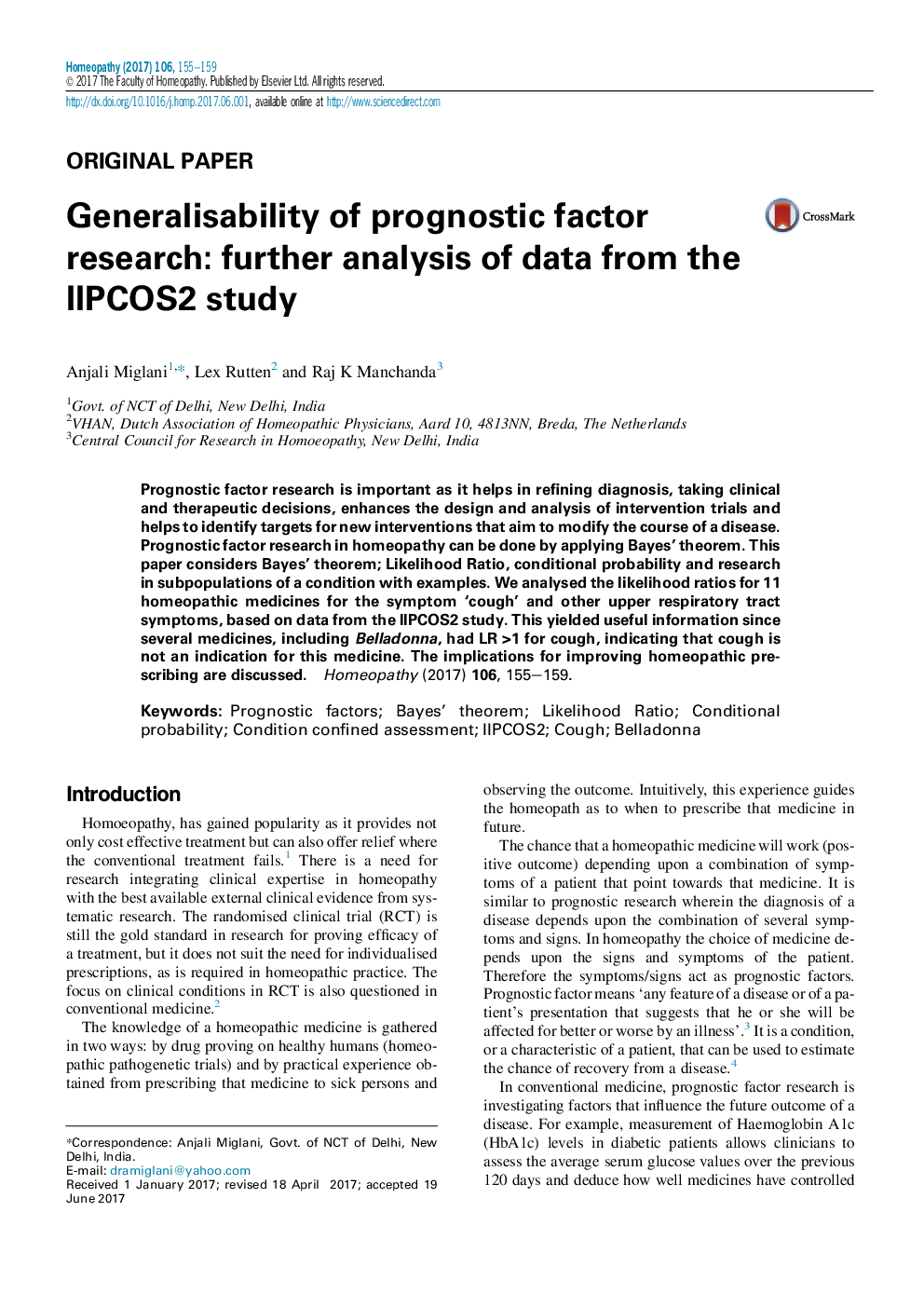| Article ID | Journal | Published Year | Pages | File Type |
|---|---|---|---|---|
| 5565266 | Homeopathy | 2017 | 5 Pages |
â¢Prognostic factor research in homeopathy can be done by applying Bayes' theorem.â¢Variants of Bayes' theorem are Likelihood Ratio and conditional probability.â¢Research in subpopulations of a condition can be done wherein it would be better to use conditional probability.â¢Utility and limitations of condition confined assessment in prognostic factor research.â¢Research protocols can be designed for applying prognostic factor research in a universal manner.
Prognostic factor research is important as it helps in refining diagnosis, taking clinical and therapeutic decisions, enhances the design and analysis of intervention trials and helps to identify targets for new interventions that aim to modify the course of a disease. Prognostic factor research in homeopathy can be done by applying Bayes' theorem. This paper considers Bayes' theorem; Likelihood Ratio, conditional probability and research in subpopulations of a condition with examples. We analysed the likelihood ratios for 11 homeopathic medicines for the symptom 'cough' and other upper respiratory tract symptoms, based on data from the IIPCOS2 study. This yielded useful information since several medicines, including Belladonna, had LR >1 for cough, indicating that cough is not an indication for this medicine. The implications for improving homeopathic prescribing are discussed.
